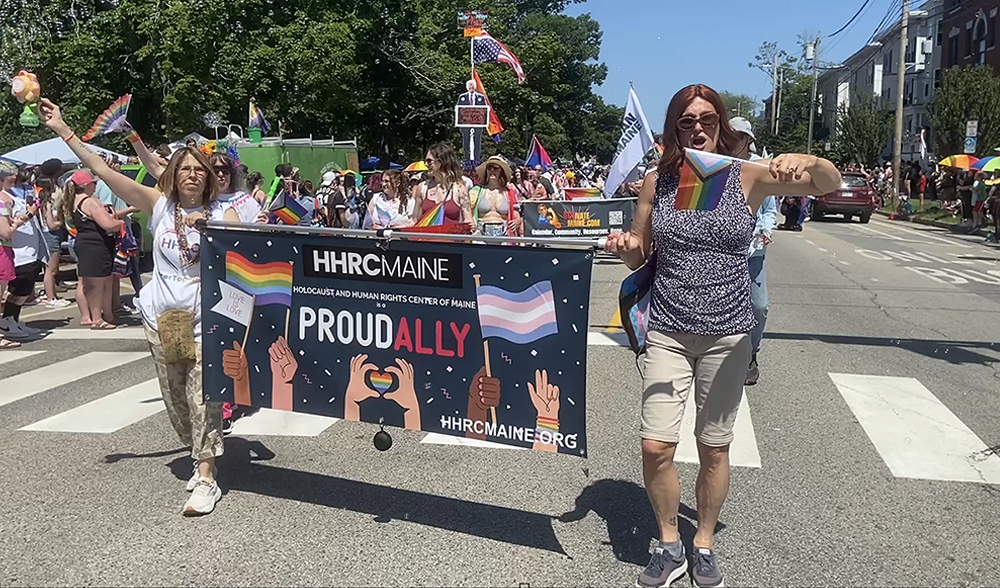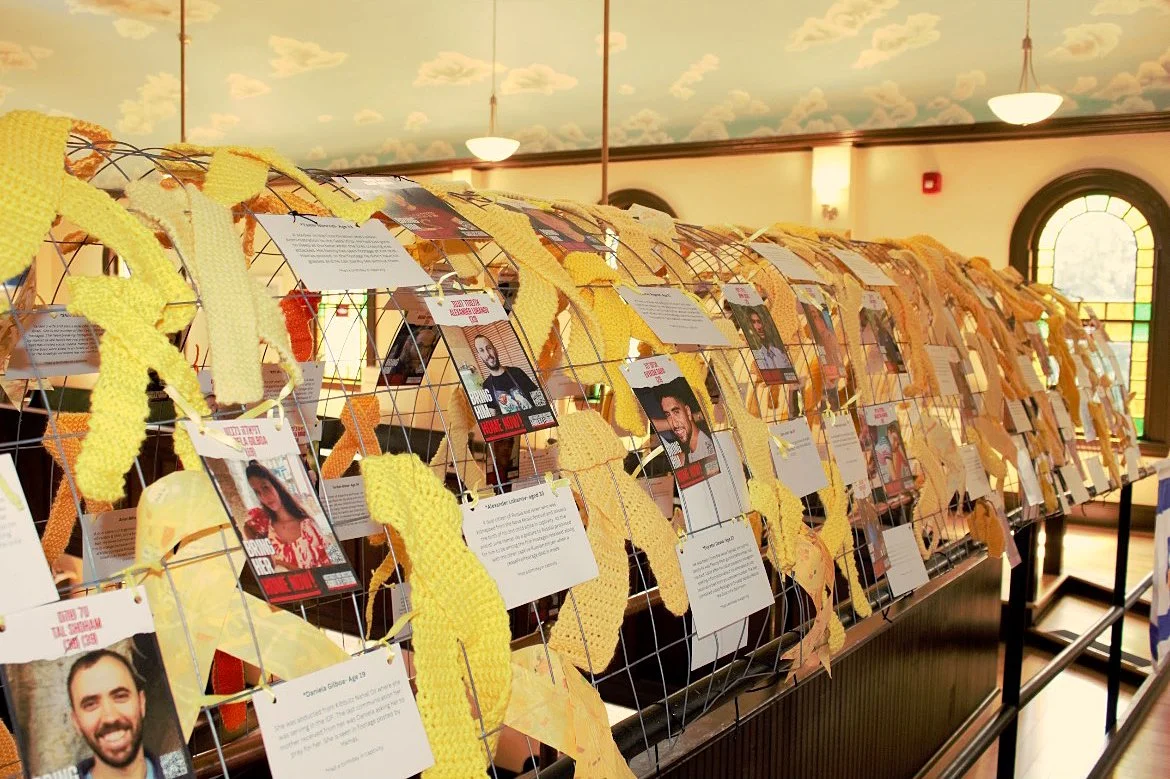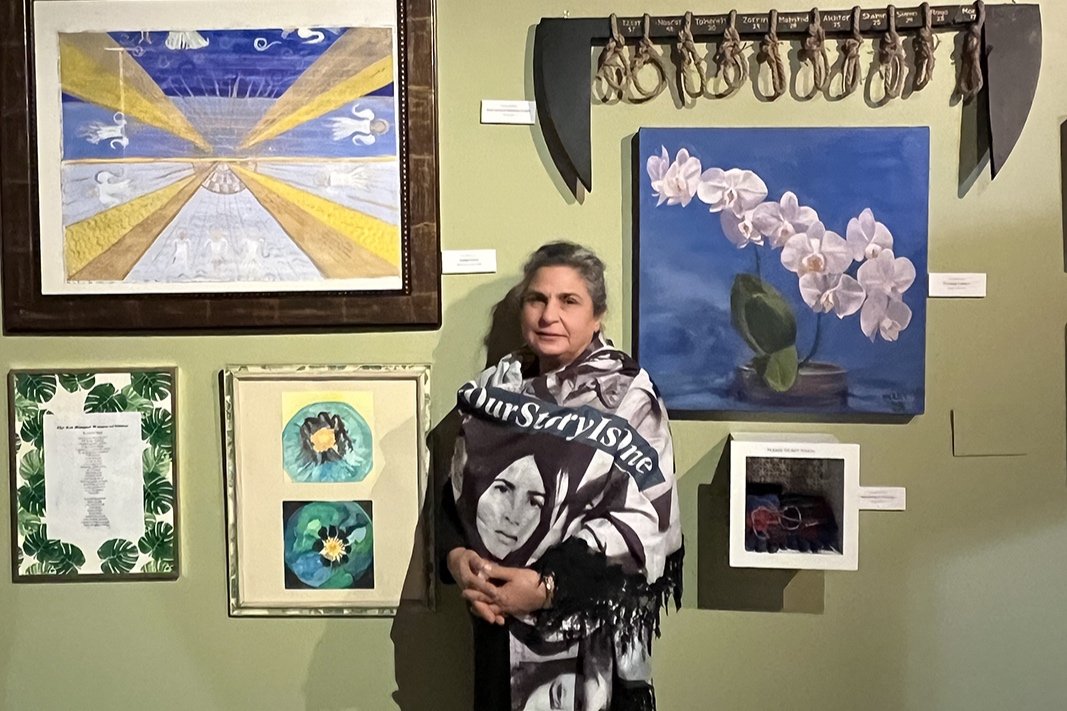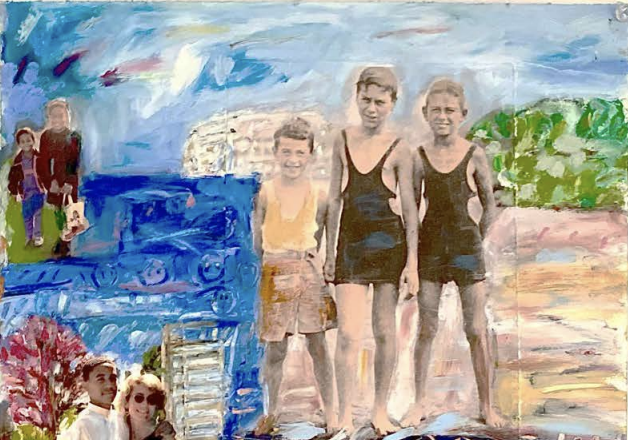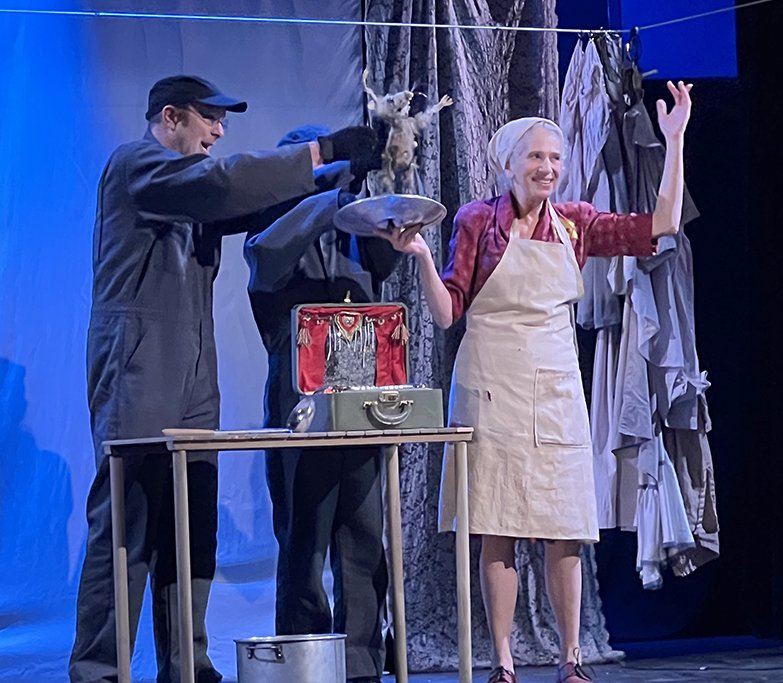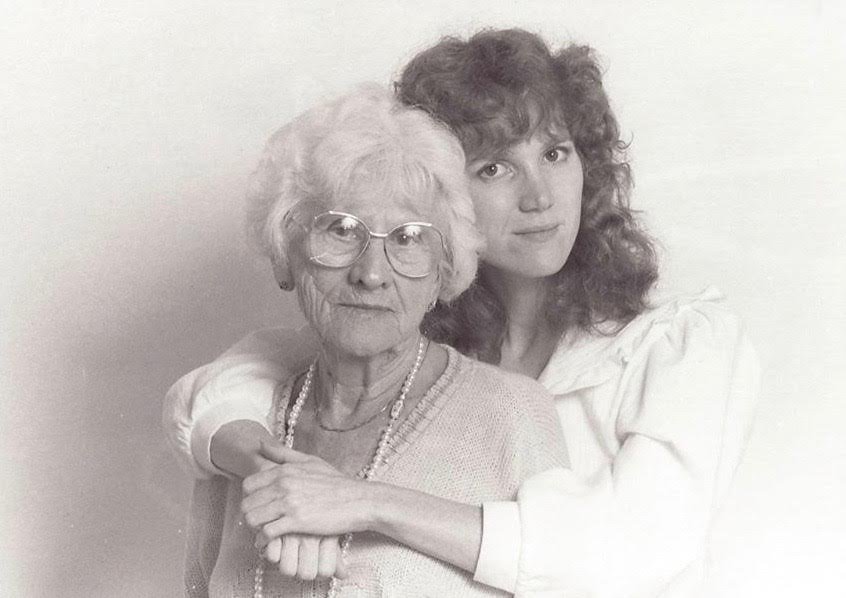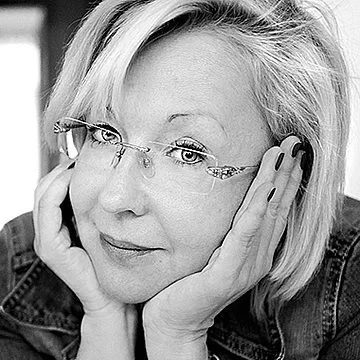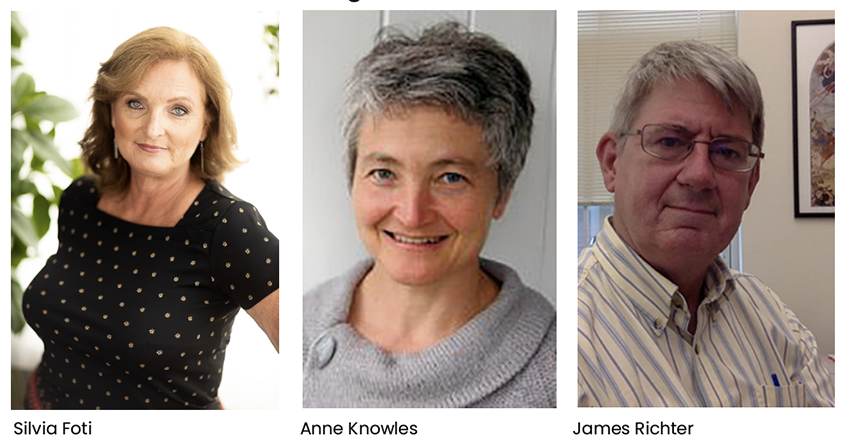Past Events
2025
Yellow Ribbons
Yellow Ribbons for Our Loved Ones was created by a mother-daughter duo, Camille and Anya Davidson. They kindly offered to talk about their experience, and the exhibit, on Sunday, July 20th, and described how they conceived of, and created, a project designed as both a call to action and a coming together of community in shared grief, hope, and an urge to do something tangible in the presence of painful waiting. If you wish to create and bring a yellow ribbon to the event, learn more at Stitch Them Home.
Camille and Anya, dual citizens of Israel and America and were inspired by the idea of a community-led project using knitted or crocheted yellow ribbons to call for the release of the hostages taken from Israel on October 7th, 2023. After months of feeling hopeless and distraught, they decided to channel their sorrow into creativity and advocacy. It has evolved and changed with the situation, but the yellow ribbon remains the symbol of the hostages. The exhibit is to bring awareness to the continued plight of the hostages and their families after nearly 2 years.
There are still hostages in Gaza—on display are their pictures along with a few words about them. Together, Anya and her artist mother Camille Davidson launched this project by hosting friends and community members at her mother’s gallery in Readfield. People gathered to knit and crochet while learning more about the hostages and the efforts to bring them home. Many also made ribbons at their homes and sent them to contribute to the display. Each ribbon is lovingly created with them in mind. We cannot forget about them and their families. #BringThemHomeNow!
A Memorable Pride Parade
On Saturday, June 21st we joined thousands of ebullient people lining the streets and marching through downtown Portland to say WE STAND WITH the LGBTQ+ COMMUNITY! We insist on their civil and human rights, their dignity and freedom, and thank them for the myriad ways they make our nation stronger, better, and more connected. The mood was inspiring, the sun shone bright, and we could not have felt more proud. Let’s go forward with that energy and commitment to keep fighting for justice and equality—and feel grateful that millions across this nation want the same. We’ll keep showing up and speaking up—join us. Some LGBTQ+ Resources: Booklists Resources for Educators & Caregivers
An Art Exhibit Opening & Reception
On Thursday, June 12th at 5:00, we gathered to hear Cordula Mathias, administrator of the Bettinson Art & Literary Trust, speak about by the late Brenda Bettinson’s work and the Bettinson Art & Literary Trust. Experience The Ravensbrück Series, a collection of 17 paintings created with acrylics paint and pencil on board, panel and fabric. Brenda Bettinson, who as a child lived through the nightly bombings during the London Blitz, was moved to create these paintings after she read Sarah Helm’s book, Ravensbrück: Life and Death in Hitler’s Concentration Camp for Women about the enslavement, beatings, torture, rape, starvation, surgical experimentation and murder of the women at the concentration camp. The Ravensbrück Series will be exhibited at the HHRC from June 12th to September 19th. Image information: Ravensbrück Series #15: Kommandant (1942 to 45) © Bettinson Art & Literary Trust, 2025 all rights reserved. Used by permission, on loan from Mathias Fine Art. Photo credit: Melville Mclean, 2025.
A Pysanky Workshop
On March 22nd, Artist Lesia Sochor offered a Pysanky workshop at the Michael Klahr Center. Lesia explained the significance of this ancient, spiritual tradition of decorating eggs using colorful designs steeped in symbolism. She described the magical powers of a Pysanka, believed to bring good luck, protection, health, and love. They were placed around homes and yards to ward off bad luck, exchanged as gifts, and cherished by future generations. Lesia demonstrated the important steps to create a Pysanka, which the group did, gaining a deep appreciation for just how much practice and talent is required to create the gorgeous ones she had brought as examples (including an ostrich egg). This springtime tradition of rebirth and renewal in Ukraine, especially during Easter holidays, dates back to 5,000 B.C. We are so grateful to Lesia for her ongoing generosity. She has loaned us her own pysankys for display in the center and paintings for two exhibits—Babushka and her Repair series now on display. Lesia has given three egg-dyeing workshops and will engage students in the restorative, ancient art of repair in a class next month. We are so fortunate to collaborate with such a talented, generous, and joyful woman.
Dismantling Democracy
On January 28th we hosted a bipartisan group of Maine legislators at the Michael Klahr Center for a reception in the atrium and presentation in the rotunda, where the walls are lined with images of Holocaust survivors, adding to the power of the presentation. Educator and Holocaust scholar Erica Nadelhaft described how Hitler rose to power, beginning after WWI when the German society was feeling defeated and discouraged. Into the void stepped a charismatic man capable of manipulating emotions with his speeches, propaganda, and lies. As the economy faltered and anxiety increased, Hitler strengthened the Nazi party and amassed power through intimidation and persuasion. In January, 1933 Hitler was appointed as Chancellor of Germany, and in August, 1934 he merged the chancellery with the presidency and became the sole leader of Germany. It took just 53 days for Hitler to destroy the democratic government and declared himself the Führer, enabling his quest for global domination, concentration camps, and the Holocaust. Representative Sam Zager helped to organize the evening and encouraged his colleagues to attend. Should you have an interest in bringing your group to attend this program at the Michael Klahr Center, please contact us at info@hhrcmaine.org
2024
An Artist Talk
We were honored to host Parivash and Nasser Rohani on December 12th in the Michael Klahr Center for an Artist Talk and reception. They describe the story of a global education and art movement, #OurStoryIsOne, that honors Bahá’í women who were killed in in Shiraz, Iran for their religious identity. The movement is expressed and shared through social media, especially on Instagram, as incredible women all over the world post their protest, pain, and courage expressed through art. Over 25 people attended the event, learning, connecting and marveling over the amazing artwork. The Baha’i International Community has now launched a global campaign called #OurStoryIsOne to honor the executed women and the long struggle for equality. They have become unified in our suffering and resilience, in our persecution and unwavering strength to combat oppression and above all to rebuild Iran, whatever sacrifices it takes. This exhibit highlights how local women’s stories can become global symbols of standing up for justice and equality.
2024 Distinguished Lecture Series
Mark Wygoda Talk
We are delighted to be offering our Distinguished Lecture Series again this year, structured around the three categories of our educational programs: Anti Bias, Human Rights, and the Holocaust. Our first speaker was Mark Wygoda, Professor Emeritus from McNeese State University in Louisiana and a current member of the Holocaust Speakers Bureau of the Center for Holocaust, Genocide, and Human Rights Education of North Carolina. Mark has 30 years of experience giving presentations about his father, Hermann Wygoda, a German-born Polish Jew who initially was a Warsaw ghetto food smuggler and later a partisan brigade commander during the Holocaust. His father's story is one of defiance and resistance. Posing as a Catholic Pole of German ancestry, Hermann lived and worked in open society while secretly helping other Jews by smuggling food into the Warsaw ghetto. He later aggressively fought back against his enemies after he became a commander of partisan fighters in German-occupied northern Italy. Following the war, Hermann was awarded an American Bronze Star medal for valor in combat by US General Mark Clark, and then immigrated to the US to start a new life. After his death Mark edited and published his father’s memoir, entitled In the Shadow of the Swastika.
Pride Portland 2024
A huge thank you to all who attended this year’s Pride Parade wit us. Your presence created a celebration of unity and support for our LGBTQ community, and together we made a powerful statement being there that was felt throughout the parade. For those who missed it, please join us next year for an unforgettable afternoon filled with joyful celebration, intense feelings of solidarity, and a whole lot of waving, cheering, seeing other organization’s expressions of community, and onlookers who make the day with nonstop cheering, clapping, flag waving, and fabulous outfits. Watch a segment from News Center Maine about why we participate in the parade each year.
Yom HaShoah
On Sunday, May 5th at 3:00 we held a Yom HaShoah commemoration in the Michael Klahr Center, our first in-person one since the pandemic. Together we shared readings, poetry and prayer. During this contemplative occasion, we paused between readings to absorb the words, reflect, and feel the enormity of so much loss. Following the service we lingered for conversation and refreshments in the atrium. We hope you will join us next year for our Yom HaShoah commemoration. Read the program here.
A Pysanky Workshop
On Saturday March 9th Artist Lesia Sochor offered a Pysanky workshop. Lesia explained the significance of this ancient, spiritual tradition of decorating eggs using colorful designs steeped in symbolism. She described the magical powers of a Pysanka, believed to bring good luck, protection, health, and love. They were placed around homes and yards to ward off bad luck, exchanged as gifts, and cherished by future generations. Lesia showed us each important steps to create our own Pysanka, which we did, gaining an awed appreciation for just how much practice and talent is required to create the gorgeous ones she had brought as examples. This tradition in Ukraine during Easter holidays dates back to 5,000 B.C. We are so grateful to Lesia for her ongoing generosity. She has loaned us her paintings for two exhibits—one of her Babushka paintings is now on display in the Center—as well as offering a second workshop. We feel lucky to collaborate with such a talented, generous, and joyful woman.
Distinguished Lecture Series
Dr. Jake Newsome
We welcomed Dr. Jake Newsome on Tuesday, March 5th, for a virtual talk entitled "They're Enemies of the State!" The Fate of LGBTQ+ People Under Nazi Rule.” Drawing on archival material, Dr. Newsome sketched the lived experiences of members of the German LGBTQ+ community under Nazi rule. In doing so, he untangles the complex motivations that convinced Nazi leaders that combating homosexuality was vital to the success of the Third Reich. The result was the destruction of the vibrant gay communities that had emerged during the Weimar years, and the targeting, torture, and murder of tens of thousands of gay Germans. And while the Holocaust ended with the defeat of Nazi Germany in May 1945, gay survivors soon learned that the era of state sanctioned persecution was not over. Dr. Newsome is an award-winning scholar of German and American LGBTQ+ history whose research and resources educate global audiences. His book, Pink Triangle Legacies: Coming Out in the Shadow of the Holocaust traces the transformation of the pink triangle from a Nazi concentration camp badge into a widespread emblem of LGBTQ+liberation, pride, and community.
Ettie Zilber
Our first speaker in the 2024 Distinguished Lecture Series was Ettie Zilber who presented on Zoom, Tuesday, February 6th. Born in a displaced persons camp in Landsberg Germany, Ettie has spent her life hearing, learning about, and researching the details of her family's Holocaust experiences—from their life in Lithuania to their immigration to America. As a second generation child of Holocaust Survivors, Ettie absorbed stories from childhood as she was raised by parents who survived unspeakable trauma. How did that trauma manifest itself in her parents’ behaviors, world views, idiosyncrasies and parenting? When and how did she learn the details of their past, and how did it impact her life, thoughts, career and behavior? This presentation describes characteristics of survivors, impressions by other second generation interviewees and her own reflections. Order Ettie’s book, A Holocaust Memoir of Love and Resilience.
A Community Conversation Series
A Conversation on Response
On March 21, we held the third session in our Community Conversation series entitled Antisemitism, Resistance, and Response. While this conversation built on the first two, participants do not need to have attended the earlier sessions in order to attend. In this final session, we talked about some of the resources available to individuals, schools, and communities to help understand and respond to the increased antisemitism we are seeing in Maine and elsewhere. We will discuss how, when, and why to report what we have seen or experienced. We will also think about other ways to resist and respond. This session will offer participants time to talk about their experiences and feelings about antisemitism in Maine.
A Conversation on Resistance
On February 13th we offered the second of three Community Conversations on antisemitism, resistance, and response. There has been asignificant rise in antisemitic incidents since October 7th; Maine has the second highest rate in the nation. As we heard from members of our community about what they were seeing and experiencing in their schools and communities, we felt it was important to offer more background and invite people into conversation. The second gathering focused on resistance, past and present, and offered background and context for the final conversation on what can be done here in Maine to reduce bigotry and hatred. For two thousand years, Jews have faced discrimination, persecution, antisemitism, and even outright slaughter. This program discussed the many ways Jews and Jewish communities have resisted persecution and consider how we define resistance and whether, or how, those definitions have changed over time.
A Conversion on Antisemitism
On January 9th we offered a zoom conversation on antisemitism that drew a lot of interest. The gathering began with a history of antisemitism that begins from what seems like the beginning of the time through the present day. While wr talked about the antisemitism and hate that we are seeing as a result of the war in Gaza, this was not a political conversation. After the presentation, we opened it up to questions and sharing what people are seeing or experiencing in their communities. We weren’t looking for solutions or ways to respond because two more programs will follow—one at the end of January on Jewish resistance and response to persecution and another in February that will draw on the conversations from the first two and begin to brainstorm about individual, school, and community responses.
A Second Pysanky Workshop
We are delighted that Maine-based artist Lesia Sochor will offer a Pysanky workshop for a second year on the morning of March 9th. Lesia will talk about the ancient ritual of transforming an ordinary egg into a ‘Pysanky’ by decorating it with colorful designs steeped in symbolism and then guide participants through the process of making their own. The word Pysanky translates as 'to write' or ' to inscribe' and describes a tradition in Ukraine during Easter holidays that dates back to 5,000 B.C. We hope you will join Lesia and others for a delightful gathering.
2023
Morgan Talty Conversation
Morgan Talty graciously offered to speak last evening, November 21st, sharing his thoughts on the writing process, teaching, and ongoing challenges facing Tribal communities. He read from his current book, Night of the Living Rez, talked about topics he explored in his next book, Fire Exit, and warmly engaged the participants in conversation. Morgan’s breakout story collection has become a national best seller and winner of numerous awards, including the PEN/Robert W. Bingham Prize and National Book Critics Circle John Leonard Prize. His work has been supported by the Elizabeth George Foundation and National Endowment for the Arts. Morgan, a citizen of the Penobscot Indian Nation where he grew up, is an Assistant Professor of English in Creative Writing and Native American and contemporary Literature at the University of Maine, Orono and a faculty member at the Stonecoast MFA Program in Creative Writing. He is also a Prose Editor at The Massachusetts Review. We are honored to have hosted this talented author and teacher to our community. View a video of his talk here.
Trio Sefardi Performance
On November 8th we welcomed Trio Sefardi to the Michael Klahr Center for a delightful performance. Howard Bass, Tina Chancey and Susan Gaeta wove together a beautiful story of their inspiration and close friend Flory Jagoda, who narrowly escaped the Nazis numerous times before coming to America. They spoke about learning Sefardi music from Flory, showed video of her describing a childhood of bravery and persistence, and played wonderful songs on historic instruments. The students from Vassalboro Middle School were engaged throughout. The Trio told about their own experiences of keeping Floy’s story alive. The ensemble performs traditional songs of the Sephardim, the descendants of Jews exiled from Spain in 1492, in venues around the world. Their repertoire draws on the song traditions from the former Yugoslavia, Greece, Bulgaria, Turkey, and North Africa. The event, and others in Maine this week, are a collaboration with the Maine Jewish Museum's Delet Program, generously sponsored by the Sam L. Cohen Foundation.
Campobello Youth Conference
Staff members at the Roosevelt Campobello International Park organized a youth conference on Wednesday, October 4, 2023. The HHRC was honored to be invited. Tam and Erica presented Finding Your Voice to students from Campobello and Lubec Schools, incorporating the Universal Declaration of Human Rights more fully into the program by identifying a fundamental right in each of the youth movements presented to the students. Erica and Tam enjoyed a film about the park, exhibits in the welcome center, touring the grounds and Roosevelt Cottage. In honor of the visit and work, they received a pin commemorating the Declaration’s 75th anniversary. During the trip, Tam and Erica visited Washington Academy and the Shead High School in Eastport to talk about speaking up, personal responsibility, and youth activism that has changed our nation’s history. They found themselves passing through the Dawnland and stopped to learn the correct pronunciation of the word Passamaquoddy. Fog drifting across the water reminded them of the image used in the documentary Dawnland. Learn more about Campobello Island and the Declaration of Human Rights here.
A Workshop on Collage and family Identity
Paula Gerstenblatt is an academic researcher, university professor in social work, and mother of two. She is also a renown artist whose seventeen latest paintings we were displayed in the Michael Klahr Center for several months. In this collection, Generational Layers, Paula brings to life the multi-layered, intergenerational and personal stories of her family through collage. On Wednesday, July 19th Paula spoke about her latest work on four generations of her family, touching on the complexity of identity and diversity. Afterwards she led us in a collage-making workshop. Participants brought their own photographs and stories to compose our own identity collage.
Professional Development
We are delighted to be joining the Penobscot River Education Partnership and the University of Maine, Augusta, in a 10-part professional development series beginning Octer 26th. PREP is an action-centered collaborative focused on enhancing the learning of PK-12 students by continually improving teaching and students’ educational experience. The various PK-12 and higher education partners work to jointly prepare and contribute significantly to the professional development of teachers with a mission to improve learning for all. The HHRC will present our program focused on Understanding and Confronting Bias on the first and final sessions of the series. We look forward to participating in this in-depth exploration of how to teach about anti-bias concepts and incorporate practices designed to build more inclusive school communities.
Maine Legislators Visit the Center
On Monday, May 22nd fourteen Maine legislators visited the Michael Klahr Center to enjoy the art exhibits, admire the space, and gather in the amphitheater for a presentation by Erica Nadelhaft on how Hitler and the Nazi party were able to able to rise to power so easily and how, once they did, Hitler could so quickly dismantle German democracy and launch plans for both European conquest and the extermination of the Jews. After her presentation, the lawmakers asked many questions, gathered in the atrium to continue the conversation, and then decided to get dinner to continue the now in-depth conversation. The visit was organized by Portland Representative Sam Zager.
The Last Rat of Theresienstadt
The Last Rat of Theresienstadt tells the story of Sofia Brünn, played by acclaimed actress Hilary Chaplain, a Weimar cabaret star from 1930’s Berlin who finds herself transplanted to Theresienstadt, a concentration camp in Czechoslovakia. In this foreign place, Sofia forges an unlikely friendship with Pavel, a rat (played by a puppet), who despite the lack of food that has driven away the rest of his kind, remains with his newfound friend out of love for her and her music. A black comedy, the play the uses music, puppetry and overhead projections. The performance explores the many ways humor and art can heal, even create resilience, in the face of extreme adversity. It is a story of prejudice and oppression juxtaposed against survival, joy and love. During the week of May 15th, Tam spoke to the students about the Holocaust and offered questions for them to consider. Our partnership with Mike Miclon, Executive/Artistic Director at Johnson Hall Theater, made our involvement in this wonderful offering to middle school and high school students possible.
A Pysanky Workshop
On Saturday, March 25th, Maine-based artist Lesia Sochor, a painter who practices the ancient ritual of transforming an ordinary egg into a ‘Pysanky’ by decorating it with ancient, often colorful designs steeped in symbolism—a beloved tradition in Ukraine during Easter holidays that dates back to 5,000 B.C. The eggs are made by melting beeswax with a candle then using a tool called a kystka to draw the designs. Once the wax dries, the eggs are dipped into a series of dyes, and the final pattern is revealed when the hardened wax is removed. The workshop offered camaraderie, art-making, and conversation. Registration is full but if you would like to be on the waiting list please email us. The beautiful painting by Lesia is of her mother.
Maine Community Policing Institute
On Thursday, March 16th the HHRC, the US Holocaust Memorial Museum, the University of Maine at Augusta Community Policing Institute, and the Maine Chiefs of Police Association, cosponsored a program “Defining Moments in Policing: Ethical Moments in Decision Making during the Holocaust.” Initiated by Noel March Led by Sarah Reza, Program Manager of the US Holocaust Museum’s Law and Justice Initiatives, the interactive and visual presentation centered on the role of police in how laws were enacted and enforced during the Holocaust. Our visionary founder Gerda Haas was featured in the presentation sharing her story of survival, including the aftermath of Kristallnacht. With too many antisemitic incidents occurring in our communities, the collective goal was to explore strategies to address and prevent antisemitism and bigotry—as well as foster partnerships with Maine police chiefs.
TRACES: A Screening
In 2022, Humanity in Action’s team of educators, researchers and animators created the documentary trilogy entitled TRACES: Portraits of Resistance, Survival and Resolve. The animated short films share first-hand testimonials from the time of the Holocaust to safeguard stories and lessons learned during one of humanity’s darkest times, and to emphasize their relevance for the present. On Tuesday, February 28th we held a virtual screening, joined by Humanity in Action Founder and Director Judith Goldstein, who led a follow-up discussion.
2022
Charles Rotmil Presentation
Longtime friend of the HHRC, Charles Rotmil is one of the last Holocaust survivors in Maine. For decades he has spoken to adults and students, urging them to remember so history will not repeat itself. It was a pleasure to welcome Charles back to the Center to speak with students from Vassalboro Middle School on Monday, May 30th. He talked about the atrocities of the Holocaust, his personal experiences as a child in hiding and a survivor of the genocide. When he shared short anecdotes about his family, he helped the students feel as though they were in the memory with him. His balance between expressing the love he felt from his family and those who supported him with the fear and helplessness of being a Jew at that time was powerful. Charles answered all of the students questions, welcoming them to ask even the difficult ones. We are so grateful for his visit.
Bella, An Immigrant’s Tale
The talented actress and playwright Vicki Summers came to the Center on Sunday, May 15th to perform Bella, An Immigrant’s Tale, about the remarkable life journey of her beloved grandmother from the pogroms of Russia (present day Ukraine) to Bella’s life in America—with all of its challenges, joy and rewards. Vicki wrote it and plays all of the characters in this charming, honest portrayal of an amazing person and role model. The play felt so relevant now with the war in Ukraine as we watch history repeating itself. A short slideshow, conversation with the audience, and a reception will follow the performance. All proceeds went to UNICEF to aid Ukrainian children and families.
New England Holocaust Educators
On Tuesday, July 19th, we hosted a gathering for members of the New England Holocaust Educators. The group toured the Center, viewed some of the artifacts, and lingered in the Reflections on Genocide exhibit. Matt Bernstein, one of the teachers who co-taught the Casco HS and USM course, was among the 16 teachers present and offered an impromptu tour and description of the course and student projects. Natasha Goldman and Page Herrlinger, history professors at Bowdoin College, were instrumental in organizing the visit. They offer a 2-week summer seminar for middle school and high school teachers funded by National Endowment for the Humanities. Its mission is to place objects of visual culture, such as artwork, posters, cartoons, or uniforms, historically seen in school classes as peripheral, at the center of the study of the Holocaust, thus enriching language arts and social studies curricula.
Distinguished Lecture Series 2022
Gia Drew, Executive Director of EqualityMaine,, the oldest and largest statewide organization dedicated to creating a fair and just society for lesbian, gay, bisexual, transgender, and queer Mainers. Gia was a high school teacher and coach for twenty years. During that time she transitioned on the job, becoming one of the first transgender public school teachers in Maine and the first trans high school coach in the country. On Thursday, March 9th, Gia captivate us with her life story filled with humor, pain, perseverance and courage.
Rebecka Wiola spoke on Monday, February 6th about writing her book, Rape: A History of Shame, Diary of the Survivors after learning of her grandmother’s horrific experiences during the Holocaust. She says, “My book is dedicated to the voices of war rape survivors being heard and embraced, as well as the people working in the field to support war rape survivors. My book provides information about trauma one can experience after rape, post-traumatic stress disorder (PTSD), transgenerational trauma, and War Rape Survivors’ Syndrome.”
Violins of Hope Maine
The Violins of Hope were on display in the Michael Klahr Center for two weeks, from October 4-17th. Many visitors, classes, and educators came to experience these extraordinary instruments and think about the journeys they have taken and the loving restoration and care they now receive from the Weinstein family. It was so exciting they came to Maine, and we feel honored to have showcased them in the Michael Klahr Center. Violins of Hope Maine was a collaboration among many, and included exhibits, educational programs, community events, and culminating performances at the Merrill Auditorium with the full Portland Symphony Orchestra. On Tuesday October 18th, we gathered for a special and intimate evening with featured Portland Symphony Orchestra musicians Charles Dimmick, Amy Sims, Willine Thoe and Sein Lee who performed on the Violins of Hope instruments. The Jewish music played by greats such as Mendelssohn, Zorn and Secunda reverberated on the walls of the rotunda, fittingly lined with portraits of Maine Holocaust survivors. A discussion and reception with special guest Avshi Weinstein Amnon’s son, followed. What a memorable 2 weeks!
Three Minutes: A Lengthening
The Maine Jewish Film Festival presented Three Minutes: A Lengthening on the weekend of September 16-18 at the Portland Art Museum. Executive Director Tam Huynh the film that is composed of fragments of amateur 16mm film shot by David Kurtz on a brief visit to his birthplace, the small Jewish town of Nasielsk, Poland, in 1938. Mr. Kurtz likely intended to capture only “place,” to show to family and friends back home. But the tension the viewer feels is palpable, knowing what the villagers do not: within a few short months, virtually everyone we see will be murdered. Of the life before us, nothing will be left. Three Minutes is a meditation on the meaning of memory when there is no one left to recall.
Distinguished Lecture Series 2022
Thursday, February 17th, Silvia Foti spoke about researching and writing her memoir, The Nazi’s Granddaughter: How I Discovered My Grandfather Was A War Criminal. As she dug deeper into the life of her grandfather, Lithuanian war hero Jonas Noreika, she discovered to her horror that he was also a Holocaust perpetrator involved in murdering 8,000 to 15,000 Jews. We heard about her journey of discovery, writing and publishing the book—and the attention that has followed.
People tend to think of the Holocaust as being represented by a few famous places, such as Auschwitz and Treblinka. On Monday, March 7th, Anne Kelly Knowles opened up the idea of Holocaust places by showing how many kinds of places were involved in the genocide, and how thinking about them can help us better understand victims’ experiences. An historical geographer and Professor of History at the University of Maine, Anne directs the Digital & Spatial History Lab and the Holocaust Ghettos Project.
During the Second World War, the Nazi regime converted the small town of Theresienstadt to serve as a transit camp before deportation to the death camps further East. On Thursday, April 14th, Bates Professor James Richter spoke about Artist Friedl Dicker-Brandeis, who taught the camp’s children painting to help them process the extreme trauma they were experiencing. Ms. Dicker-Brandeis and the vast majority of her pupils were murdered in the Nazi death camps, but the pictures survive as a testimony to tragedy and the human spirit.
2021
Dawnland Screening & Discussion
On Sunday, December 6th we hosted a virtual screening of Dawnland, a documentary that tells the story of the first official Truth and Reconciliation Commission in the United States to uncover, and confront, the horrific removal of Native American children from their homes to “save them from being Indian.” The film is raw, honest and difficult to watch as those directly involved and affected by the cruelty speak. The documentary aired on Independent Lens PBS in November 2018 and 2021, reaching more than two million viewers and won a national Emmy® Award for Outstanding Research in 2018. Mishy Lesser, Learning Director for Upstander Project and award-winning researcher, led a discussion after the viewing.
A Conversation with Indigenous Youth
The HHRC invited teachers, students, and members of the public to a panel discussion on Monday, November 23rd to explore the Indigenous experience in Maine for children and young adults. Saige Purser, a citizen of the Yakama Nation, moderated. Special guests were: Keyana Pardilla, a Passamaquoddy and Penobscot; Jayden Love, a Dine and Penobscot; and Carmella Bear, a Penobscot. These students beautifully articulated their experiences as children leaving the reservation schools to attend public school in Maine where they experienced stereotyping, prejudice, othering and bullying from their white classmates. They also offered suggestions and hope for creating schools and communities that replace ignorance with knowledge and tools to become inclusive, welcoming and appreciative of all its members.

